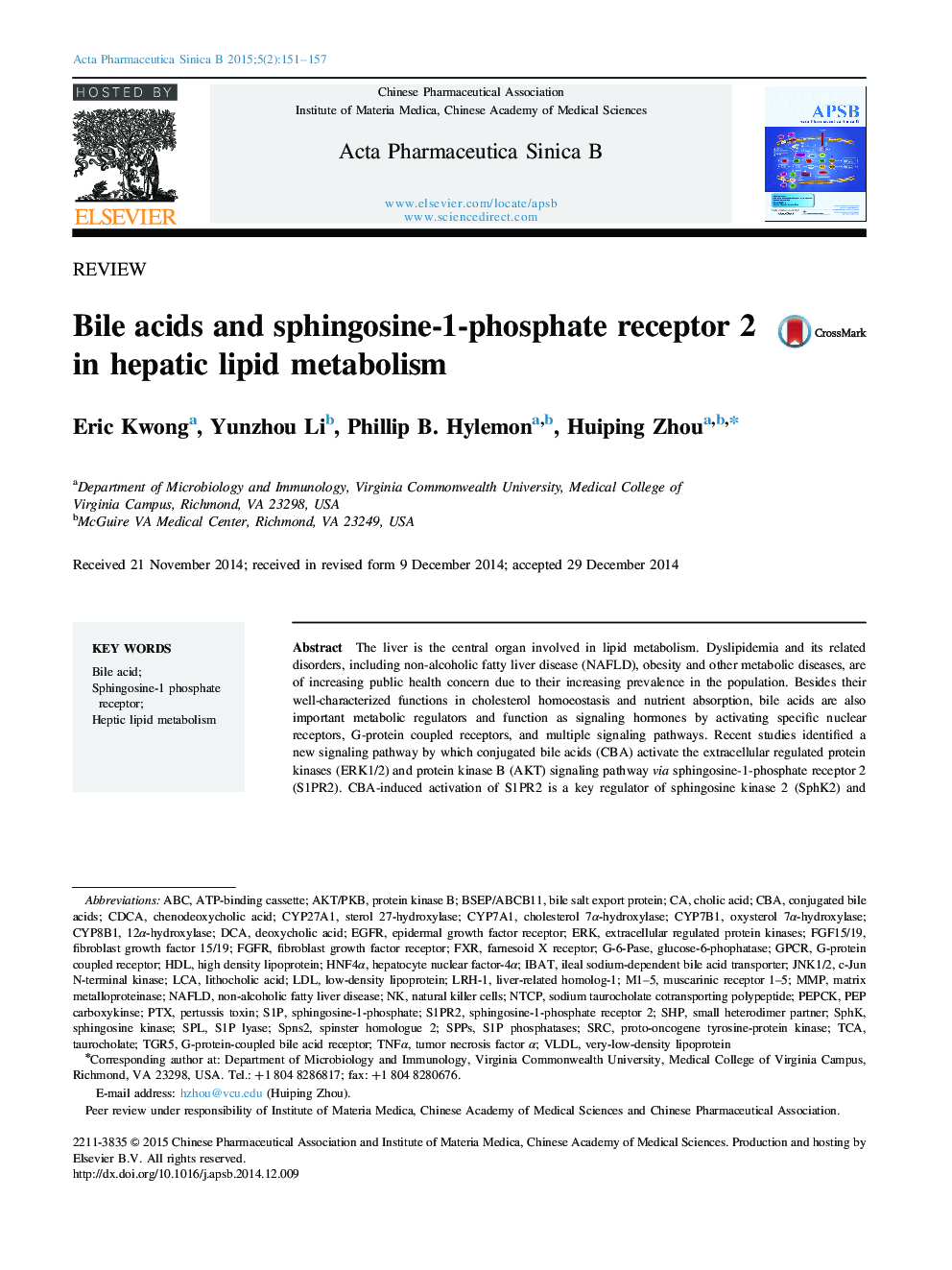| Article ID | Journal | Published Year | Pages | File Type |
|---|---|---|---|---|
| 2474611 | Acta Pharmaceutica Sinica B | 2015 | 7 Pages |
The liver is the central organ involved in lipid metabolism. Dyslipidemia and its related disorders, including non-alcoholic fatty liver disease (NAFLD), obesity and other metabolic diseases, are of increasing public health concern due to their increasing prevalence in the population. Besides their well-characterized functions in cholesterol homoeostasis and nutrient absorption, bile acids are also important metabolic regulators and function as signaling hormones by activating specific nuclear receptors, G-protein coupled receptors, and multiple signaling pathways. Recent studies identified a new signaling pathway by which conjugated bile acids (CBA) activate the extracellular regulated protein kinases (ERK1/2) and protein kinase B (AKT) signaling pathway via sphingosine-1-phosphate receptor 2 (S1PR2). CBA-induced activation of S1PR2 is a key regulator of sphingosine kinase 2 (SphK2) and hepatic gene expression. This review focuses on recent findings related to the role of bile acids/S1PR2-mediated signaling pathways in regulating hepatic lipid metabolism.
Graphical abstractThis review focuses on recent findings related to the role of bile acids/S1PR2-mediated signaling pathways in regulating hepatic lipid metabolism.Figure optionsDownload full-size imageDownload as PowerPoint slide
